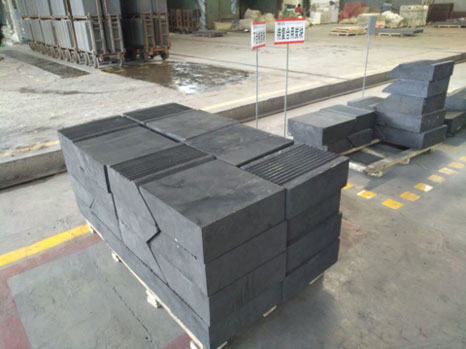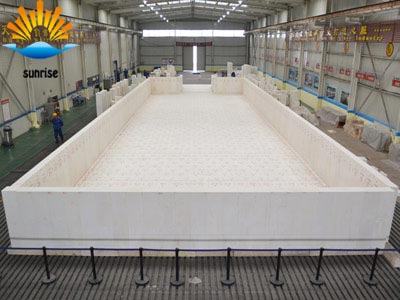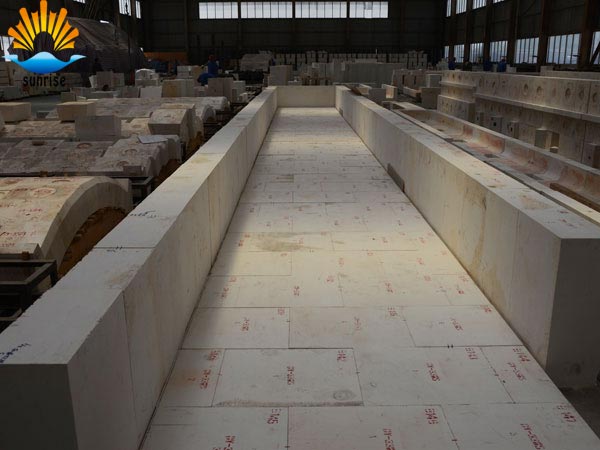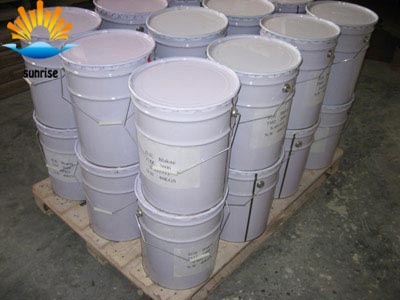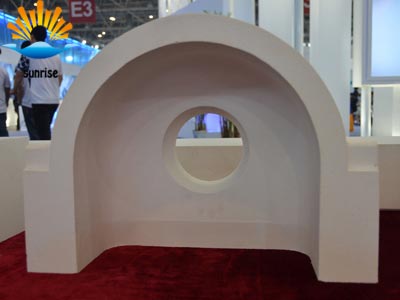1. Mainly used as side wall lining for Al electrolysis cell, burner for Al refining furnace, garbage destructor, etc.
2. Mainly used for lower part of stack, bosh, belly lining of blast furnace and boiler linings of fluidization furnace, etc.
3. Mainly used as kiln furniture such as deck and pillars for industries of ceramics, electro-ceramics and abrasive wheel.
4. Mainly used as heat exchange pipe for high temperature kilns, heater for Al refining furnaces, tuyere sleeve for blast furnace, etc.
|
|
|
|
|
|
|
|
|
|
|
|
|
|
|
|
|
|
|
|
|
|
|
|
|
|
|
|
|
MOR MPa |
Room temp. ≥ |
|
|
|
|
|
|
Refractoriness under load, ℃ ≥ (0.2MPa, 0.6%) |
|
|
|
|
|
|
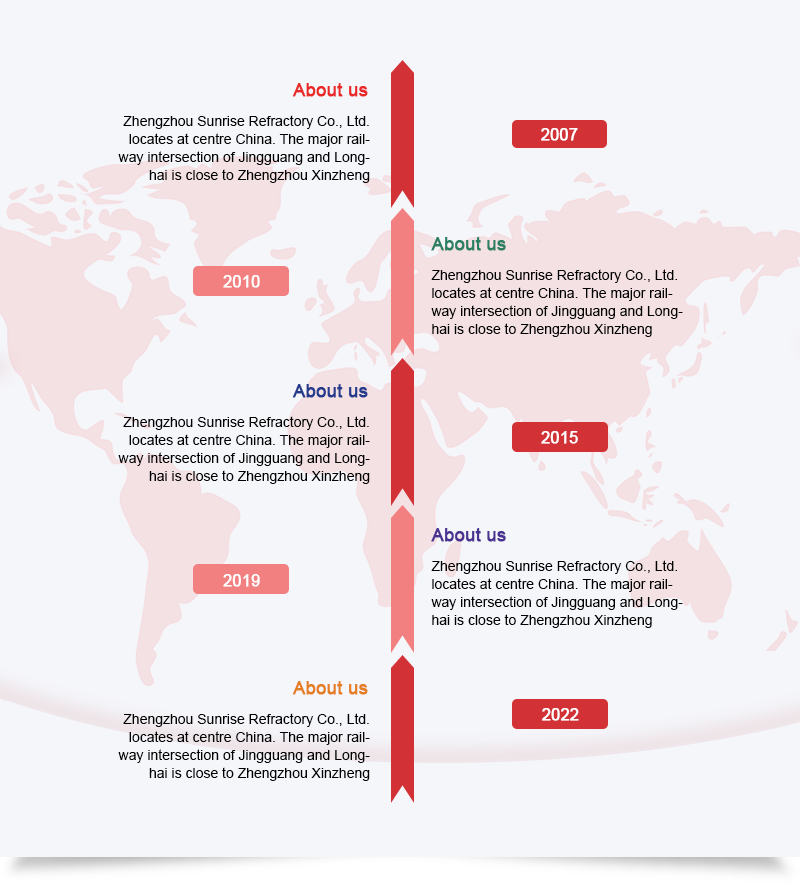
Factory strength »

















